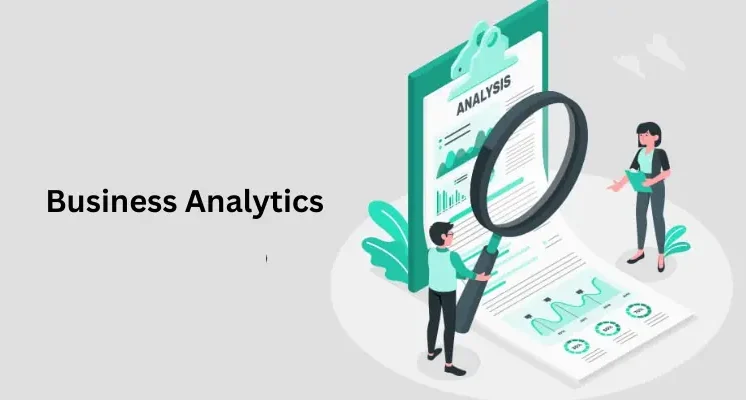Which Business Analytics Approach is Right for Your Company?

Leveraging data has become essential for driving growth and staying competitive in business decision-making. Analytics offers valuable insights from data analysis, aiding companies in making informed decisions. However, there are various approaches to analytics, each suited to different organizational needs and objectives. This blog explores the types of business analytics and helps you determine which approach is right for your company.
Descriptive Analytics
Descriptive analytics involves analyzing historical data to understand past performance and trends, offering a foundational understanding of business operations. Companies can identify patterns, anomalies, and key performance indicators (KPIs) by examining descriptive analytics to inform future decision-making. This approach is ideal for companies seeking to gain insights into historical data and track performance metrics effectively, a crucial aspect emphasized in MBA Business Analytics in Chennai programs.
Predictive Analytics
Predictive analytics utilizes historical data and statistical algorithms to forecast future outcomes and trends. This approach enables companies to anticipate future events and make proactive decisions based on predictive models. By leveraging predictive analytics, businesses can identify opportunities, mitigate risks, and optimize resource allocation. Predictive analytics suits companies looking to forecast market trends, anticipate customer behaviour, and optimize operational efficiency.
Prescriptive Analytics
Prescriptive analytics furthers predictive analytics by recommending actions to optimize outcomes based on predictive models and data analysis. This approach predicts future scenarios and provides actionable insights and recommendations for decision-making. Prescriptive analytics enables companies to simulate various scenarios, assess potential outcomes, and determine the best action to achieve desired results. This approach is ideal for companies seeking to optimize decision-making processes, improve operational efficiency, and drive strategic growth initiatives.
The Relevance of Business Analytics Education in MBA Programs
In today’s data-driven business landscape, proficiency in business analytics is a valuable skill set for aspiring business professionals. MBA programs equip students with the knowledge and skills needed to excel in analytics roles. By integrating MBA Business Analytics coursework into their curriculum, MBA colleges prepare students to leverage data effectively, make data-driven decisions, and drive business success. Aspiring business professionals enrolled in MBA programs gain hands-on experience with analytical tools, data visualization techniques, and business intelligence platforms, enhancing their analytical capabilities and market competitiveness.
Selecting the right business analytics approach is essential for maximizing the value of data and driving business success. Whether descriptive analytics for understanding past performance, predictive analytics for forecasting future trends, or predictive analytics for optimizing decision-making, each approach offers unique benefits tailored to different organizational needs. As companies navigate the complexities of data-driven decision-making, leveraging business analytics becomes increasingly crucial. Moreover, integrating analytics education into MBA programs empowers aspiring business professionals with the skills and knowledge needed to thrive in the digital age. Explore the various options and find the best fit for your company’s analytics needs while discovering MBA Colleges Near Me that prioritize business analytics education.